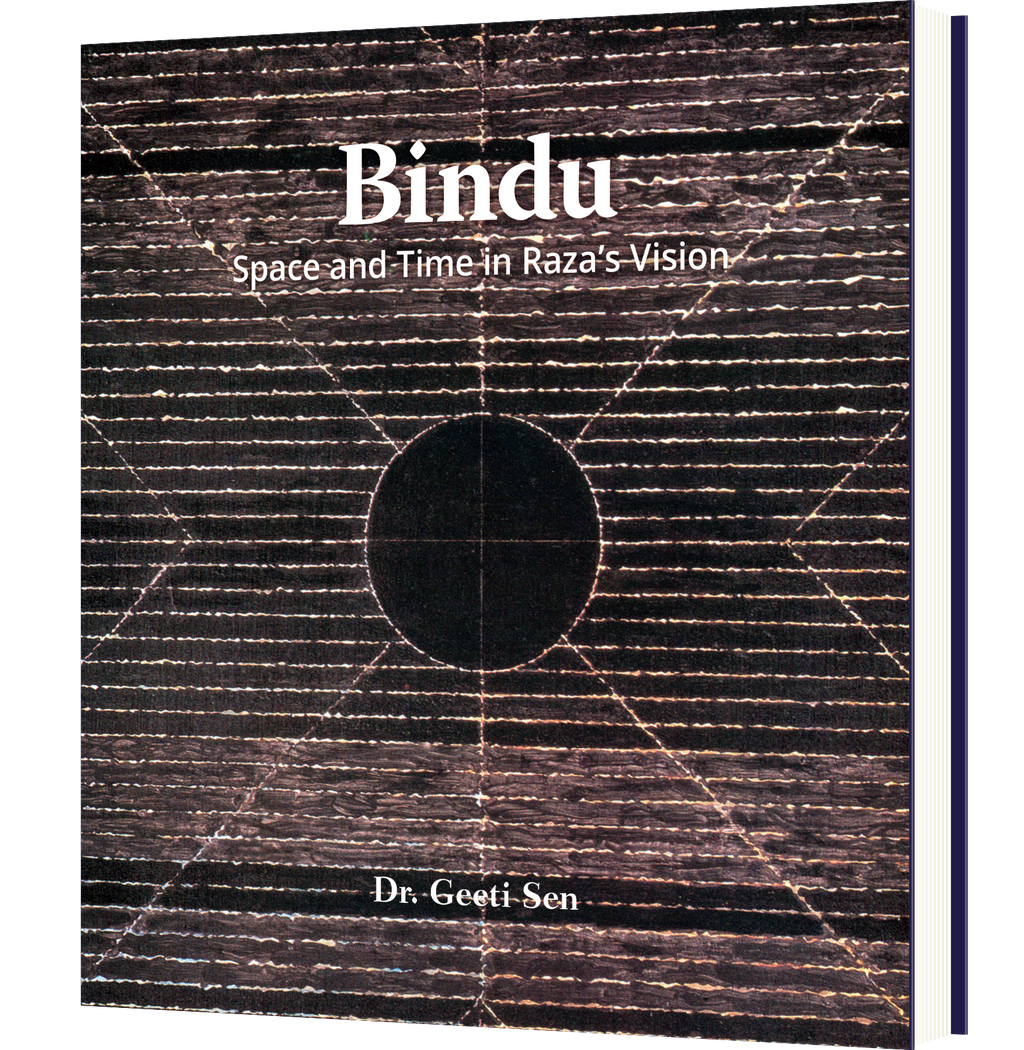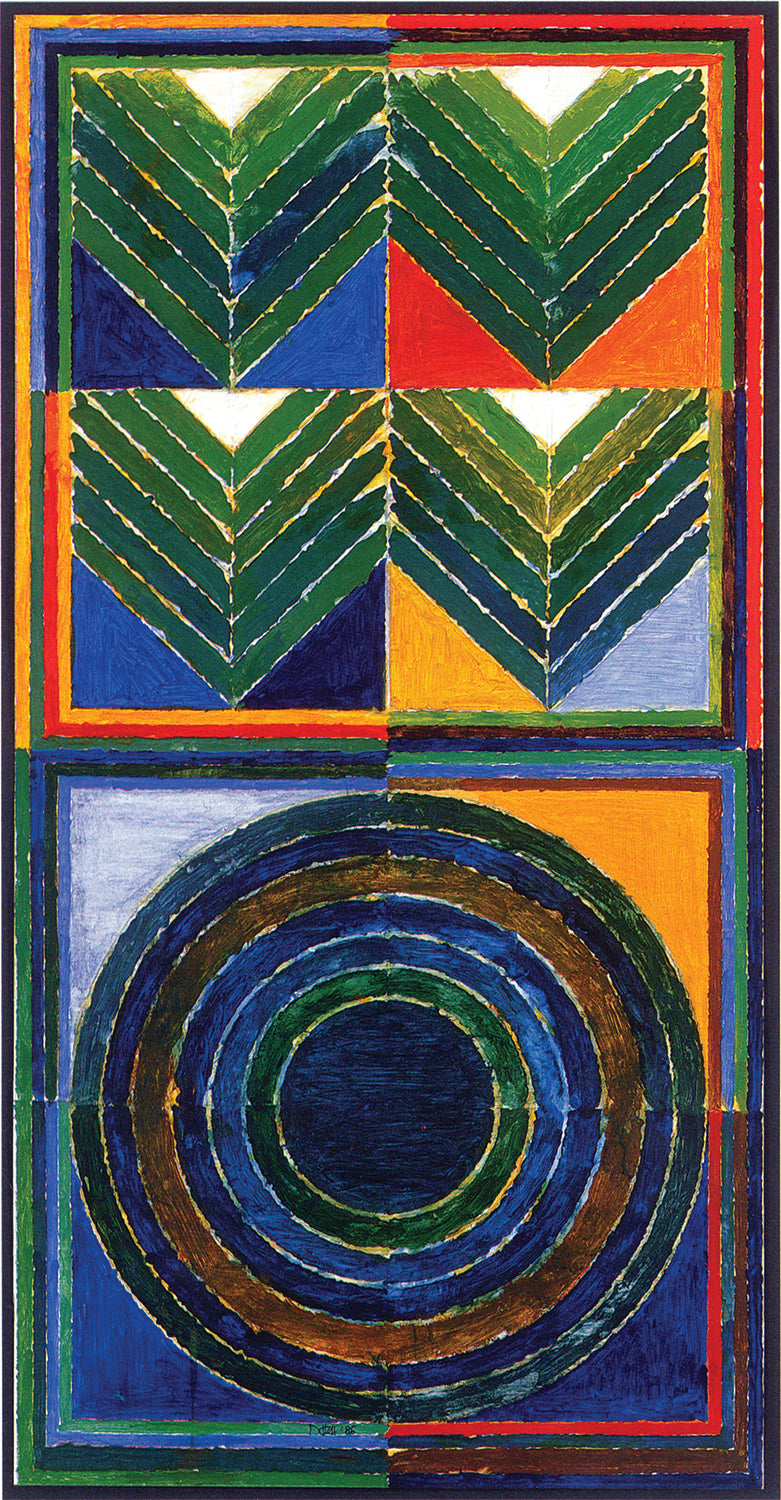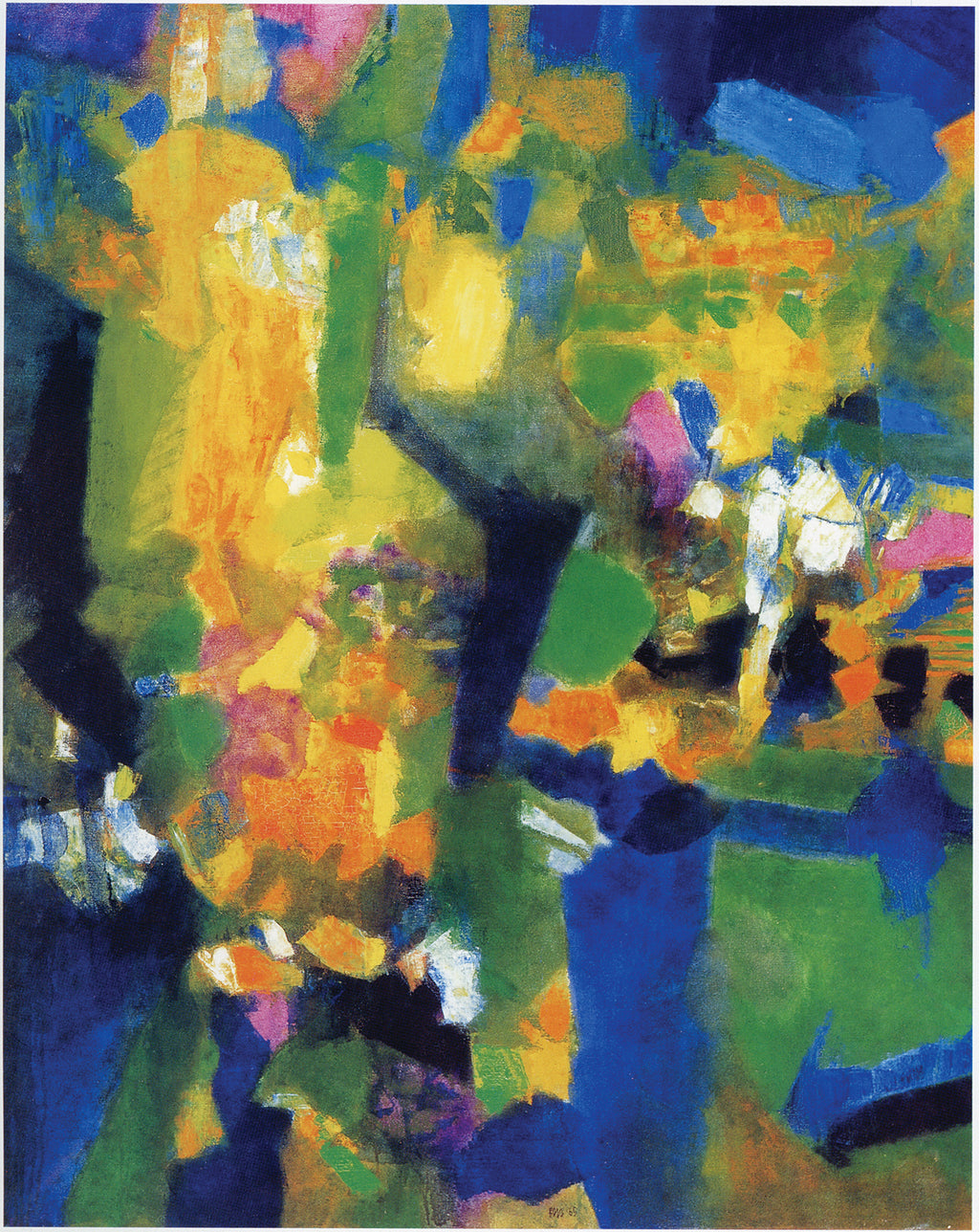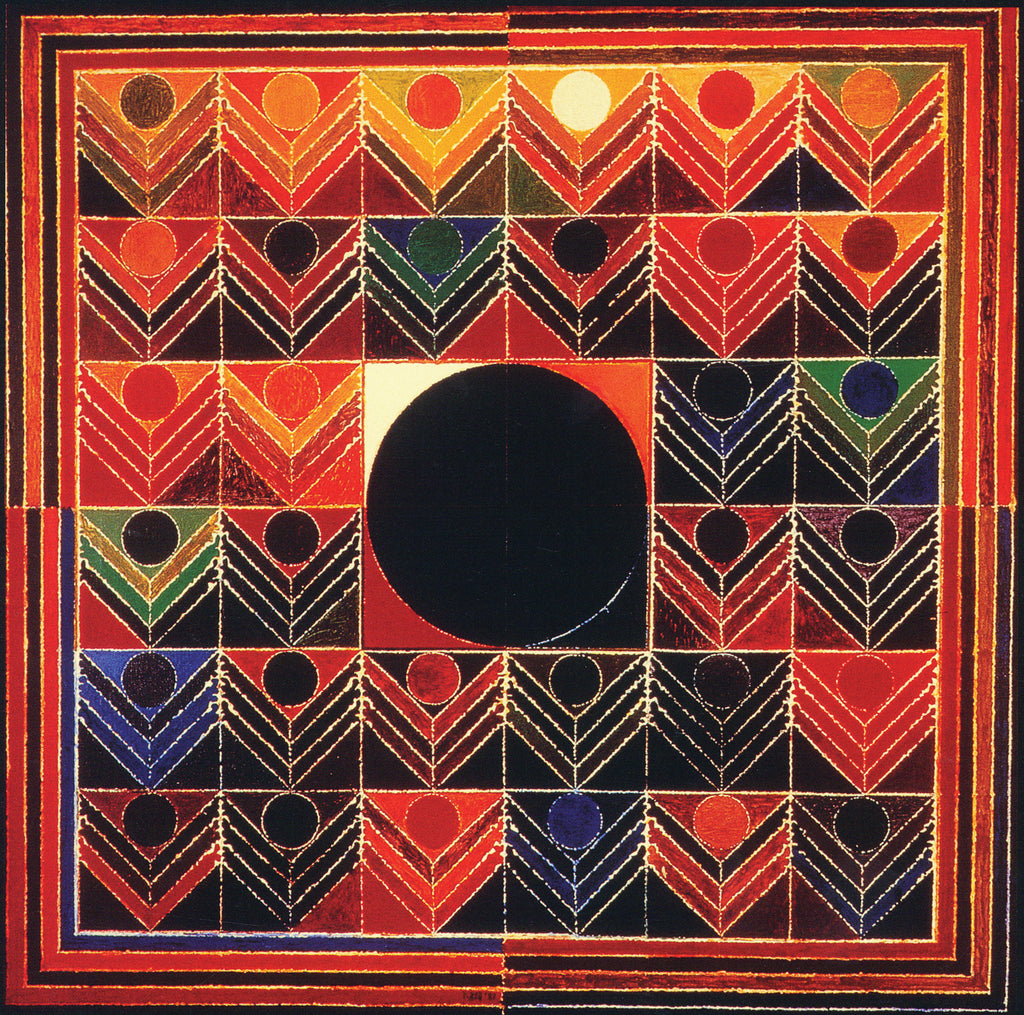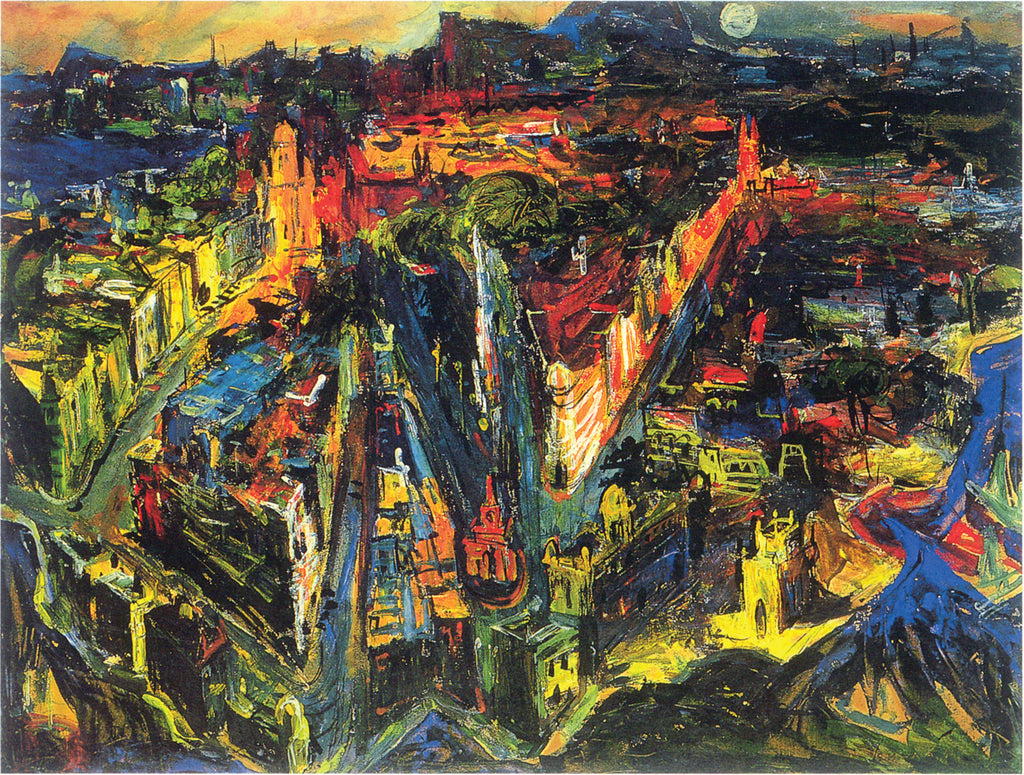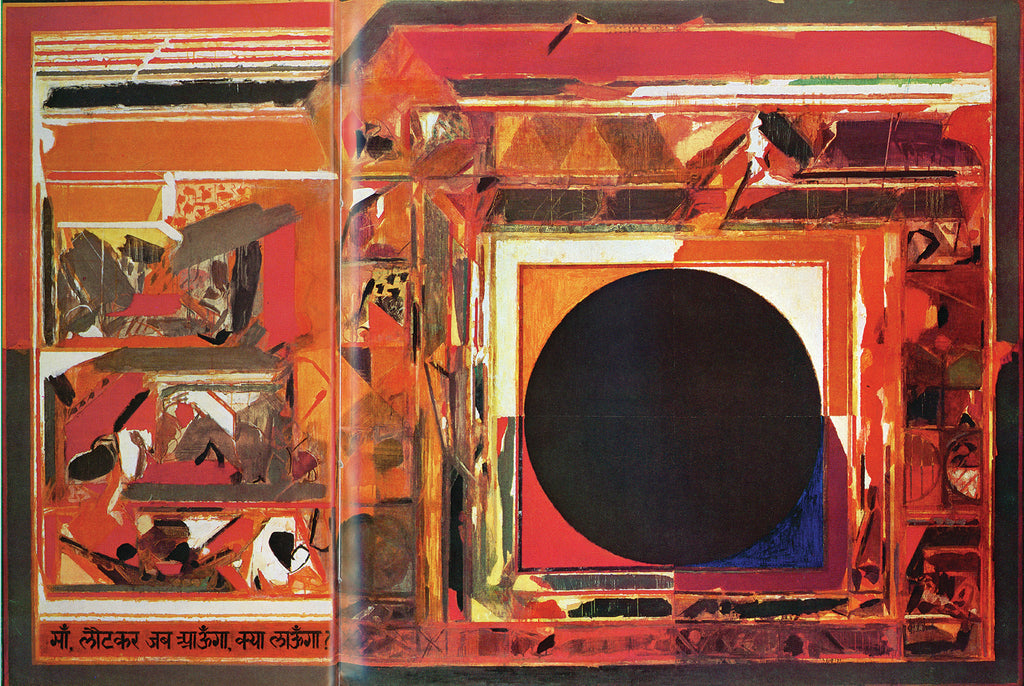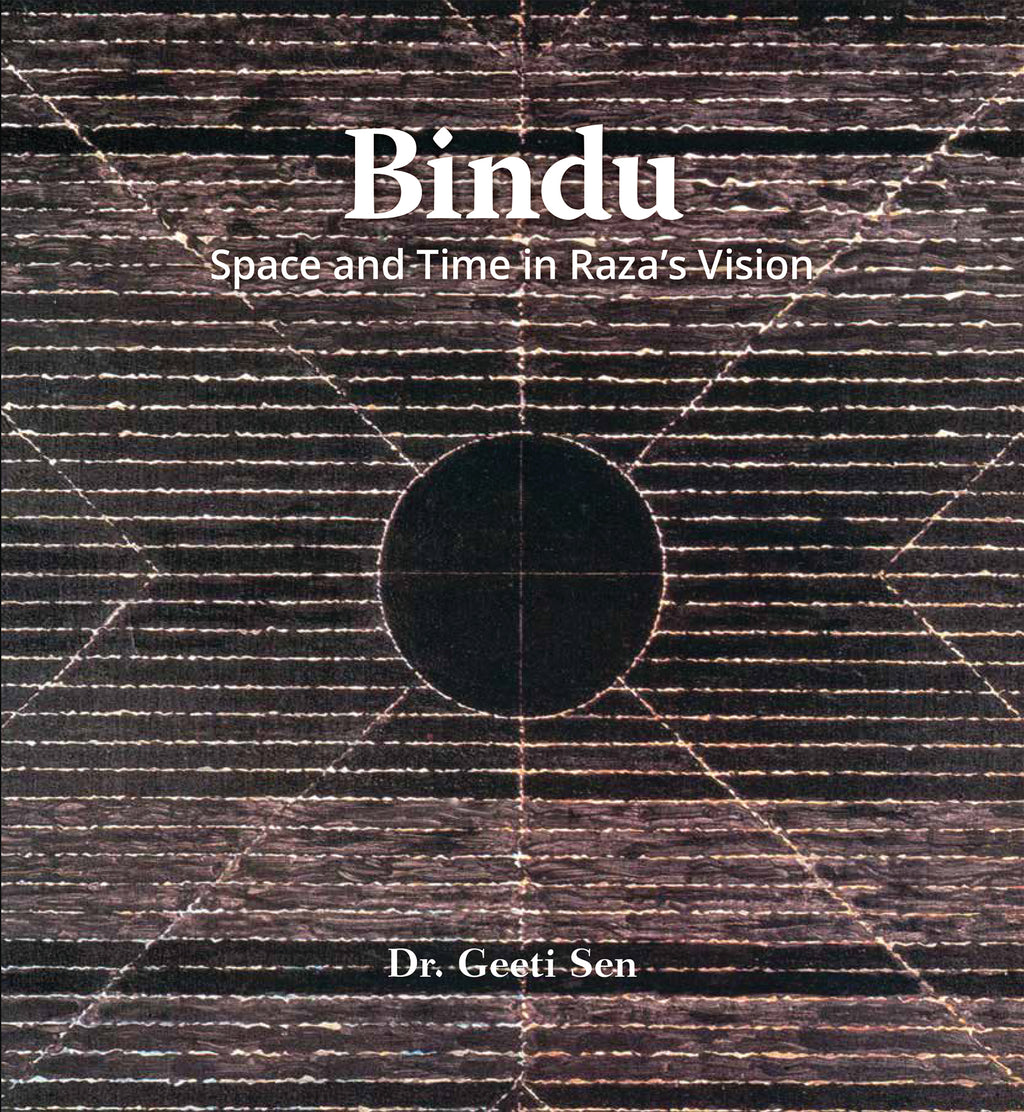Bindu
Space and Time in Raza’s VisionThe bindu has been the leitmotif in S.H. Raza’s work, growing in meaning over many years.
Raza’s concern with nature was to explore the elementary principles of space and time that govern the universe. To express these fundamental concepts, which form the basis of Indian thought, he used the principles of pure geometry. His use of the point, line, square, circle, and triangle compose part of a universal language—explored equally by the pioneers of abstract art in 20th-century Europe and, later, the abstract artists of the New York school as well as traditional shilpins in ancient India.
This book traces the evolution of a vision over fifty years of painting, by an artist who retains his Indian sensibility. His is an impassioned language of colour and form, which evokes through the senses, poetry and music in painting. His images are improvisations on an essential theme: the mapping out of a metaphorical space in the mind that is India. The bindu becomes enshrined as an icon, as sacred geography, restoring us to a sense of wholeness.
Dr. Geeti Sen is a cultural historian, professor, art critic and editor, trained at the Universities of Chicago and Calcutta. She is a prominent figure in the Indian cultural world and has been invited to lecture in many parts of the world: United Kingdom, United States of America, Canada, Ireland, France, Spain, Brazil and Russia. In the 1970s, Sen was the art critic for The Times of India in Bombay and the Assistant Editor at Marg, the prestigious art journal from Mumbai. Later, she served for two years as the art critic for India Today, Delhi. From 1990 to 2006, she was appointed the Chief Editor of publications at the India International Centre in New Delhi. In 2009, she was selected by the Government of India as the first Director of the Indian Cultural Centre in Kathmandu, Nepal, serving until 2013.
Sen is the author of several books, including Your History Gets in the Way of My Memory (2012), Feminine Fables: Imaging the Indian Woman in Painting, Photography and Cinema (Mapin, 2002), Revelations: Ganesh Pyne (2000), Bindu: Space and Time in Raza’s Vision (1997), Image and Imagination (Mapin, 1992) and Paintings from the Akbar Nama: A Visual Chronicle of Mughal India (1984). Each of these books interprets art with an interdisciplinary approach, integrating art with the wider concerns of ethics and social values in India. Sen is the recipient of several awards including the Smithsonian Fellowship, the Homi Bhabha Fellowship, the Jawaharlal Nehru Fellowship, a grant from the Asian Cultural Council in New York, and was selected as the Asian art critic for the Sao Paolo Biennale in Brazil in the year 2000.
• Revised Preface
• Introduction
• Ankuran: Germination
• Bharat: Life Persists...
• La Forge: The Furnace
• Ma: The Motherland
• Tam Shunya: Black Void
• Bindu: The Point
• Spandan: Resonance
• Biography
• Bibliography
| ISBN | 9789385360817 |
| Pages | 208 |
| Number of photographs | 70 colour and 20 b&w |
| Size | 8.26 x 9" (210 x 228.6 mm), sc with gatefold |
| Date of Publishing | 2020 |
| Language(s) | English |
| Co-publisher(s) | Mapin in association with Raza Foundation Raza Foundation |
| Rights Available | World rights |





